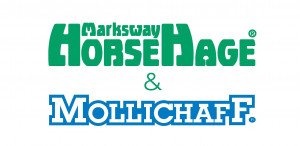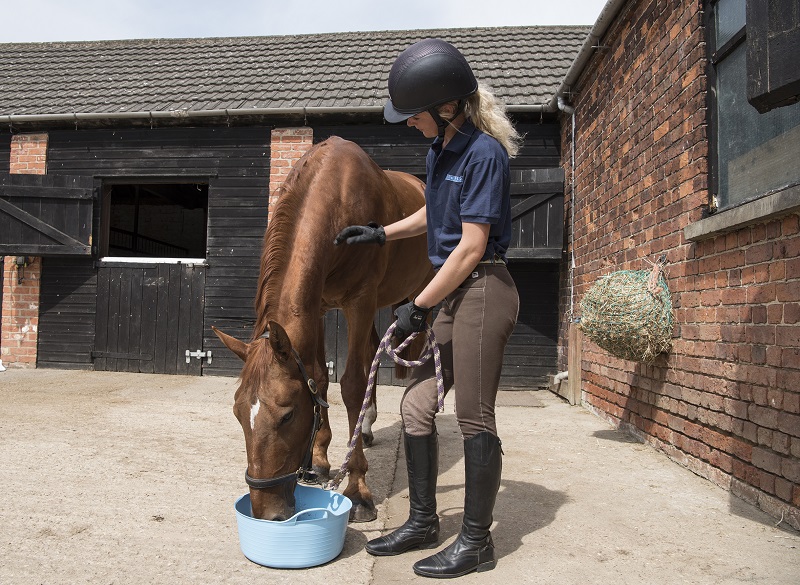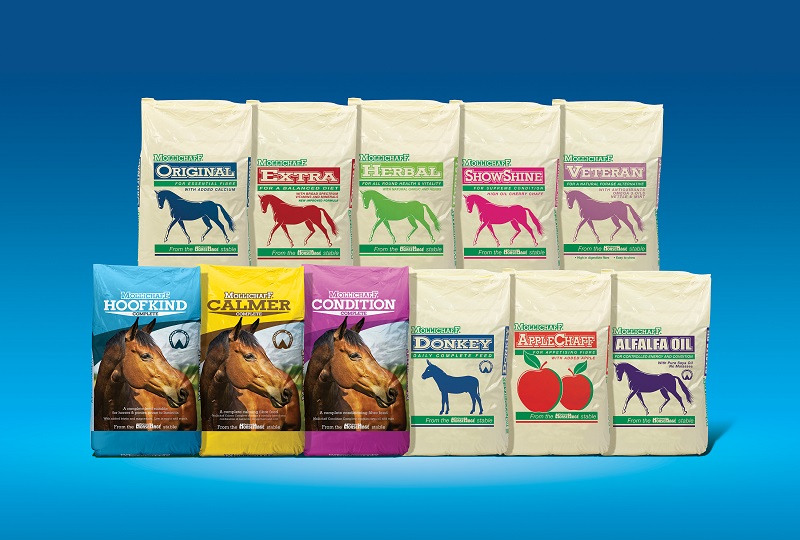Posted: 13th February 2019 | Back to news feed

Today’s modern feeding practices such as feeding large amounts of cereal feed and suppressing natural foraging behaviour, is at odds with keeping the horse’s gastrointestinal tract functioning well.
The horse’s digestive system has evolved to utilise a high fibre diet, using bacterial fermentation in a highly developed large intestine. Equines are natural trickle-feeders, grazing on pasture or forage for most of the time if allowed. This fibre passes slowly through the gut, which is designed to receive small but regular amounts of food at a time, and it is moved through the system via muscle contractions. This continual supply of fibre keeps the muscle contractions going and as well as providing nutrients, it also helps to keep the horse warm. So leaving a horse or pony for long periods of time without forage or grazing can cause serious health problems, as can poor quality, or low levels of fibre in their diet.

For most leisure horses and those competing at lower levels, up to 100% of their energy needs can be supplied using fibre, but as a rough guide, at least 70% of the horse’s diet should consist of long-stem forage. To help increase digestible fibre content, a high quality chaff may also be used in a bucket feed to bulk out the meal and prolong eating time.
The Mollichaff range of chaffs has a range of seven tempting varieties. Made from top quality oat and wheat straws, the chaffs are dust-extracted, chopped and lightly mixed with a light dressing of molasses using a special process that coats every part of the chaff evenly to make it very palatable. It also gives Mollichaff an open texture, unlike heavily molassed chaffs which can be sticky and lumpy. The range also includes a molasses- free product – Mollichaff Alfalfa Oil.
By stimulating the production of saliva and slowing down the passage of food throughout the gut, Mollichaff can help to promote good digestion. In particular it will satisfy a stabled horse’s psychological need to chew, requiring up to 8000 chews per kilo to eat compared to as few as 1200 for concentrates.
The Mollichaff range also includes three high fibre, complete feeds:
- Mollichaff HoofKind Complete – a complete fibre feed which is low in
starch and sugar and cereal-free, for horses and ponies prone to laminitis
(also great for good doers).
- Mollichaff Calmer Complete – a complete fibre feed which is low in starch and sugar with lemon balm, mint and camomile plus added magnesium, for horses and ponies that can be nervous or excitable.
- Mollichaff Condition Complete – a complete fibre feed which is high in oil and contains Yea-sacc® and a prebiotic for a healthy digestive system. It is suitable for encouraging weight gain and condition in underweight horses and ponies.

All three of the Mollichaff Complete feeds contain a broad spectrum vitamin and mineral supplement and, when fed at the recommended levels, can be used as the sole concentrate feed. Feeding a fibre-based feed over one that is cereal-based is a more natural and healthier way of feeding your horse or pony.
For more information on the best fibre feed for your horse, please call HorseHage on: 01803 527257 or visit www.horsehage.co.uk
The Equestrian Index newsfeed is compiled from articles submitted by advertising members and expresses the opinions of those members. Watsons Directories Ltd shall not be held liable for any inaccuracies or mis-statements therein.
